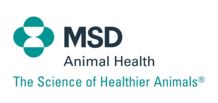



MSD Animal Health Presents Fatigued Cattle Syndrome Webinar
GLOBAL - MSD Animal Health, known as Merck Animal Health in the US, recently sponsored a webinar, “Fatigued Cattle Syndrome: What You Need to Know,” presented by Dan Thomson, D.V.M., Ph.D., the Jones Professor of Production Medicine and Epidemiology at Kansas State University.His presentation was based on the recently published “Description of a Novel Fatigue Syndrome of Finished Feedlot Cattle Following Transportation,” in the Journal of the American Veterinary Medical Association.
Dr Thomson discussed the research conducted by him and his well-respected colleagues, as well as their valuable findings about Fatigued Cattle Syndrome (FCS).
The independent research concluded that cattle that are stressed during the end of the feeding period can experience FCS, which can result in strained breathing, slow or lethargic movement, or non-ambulatory cattle.
With regard to the causes of such stress, the study determined that factors such as heat load, animal size, cattle handling, time of day at shipping and animal transportation caused stress during the summer leading to cattle that were fatigued. In addition, factors once at the packing plant can contribute to cattle being fatigued, including time spent standing, available shade, water cooling, pen surface, cattle handling and density of cattle in pens.
According to Dr Thomson, “Cattle that are fed beta agonists are no more likely to develop FCS than other cattle, and there are no differences in this regard whether the cattle are fed zilpaterol, ractopamine or are not fed a beta agonist at all. In reality, the factors that contribute most significantly to FCS are the finished weight of cattle, heat stress and animal handling practices.”
The identification of FCS is significant for producers, nutritionists, veterinarians and packing plant personnel because it brings to light multiple factors that can impact cattle movement. It also offers a chance for the industry to work together to create solutions for continuous improvement in the area of cattle well-being now and in the future.
MSD Animal Health believes it’s important to support the FCS Stewardship Program and have agreed to fund it because it is something that will benefit the entire industry. The company wants to make good practices better, provide information and training, support the needs of producers and contribute to the industry’s continuous improvement efforts.
Based on the research of Dr Thomson and his colleagues, as well as the other studies that have been published over the past two years, Zilmax has been proven safe and effective when used according to label and in conjunction with good animal husbandry practices. Zilmax will be made available to those customers who complete the Zilmax Certification Program, are willing and able to participate in the Fatigued Cattle Syndrome Stewardship Program, and have secured an outlet for their cattle.
MSD Animal Health hope you will join them in supporting and engaging in the Stewardship Program. The program will be conducted in-field and will periodically collect and monitor real-world data and is focused on minimising/ eliminating fatigued cattle syndrome in the industry by mitigating risk factors – in the feedyard, during transport and at the packing plant facilities. Bottom line, this program will create positive change within the industry and will support continuous improvement of animal well-being practices.
If you’d like to watch the webinar in its entirety, you may access it by clicking this link. The webinar recording will be available for one year. If you would like to read “Independent Research Results Establish the Multifactorial Nature of Fatigued Cattle Syndrome: Education and Preventive Measures Key to Successful Management of Condition,” you may access it by clicking this link. There will be more information to come in the future.
| TheCattleSite News Desk | More MSD Animal Health News |



